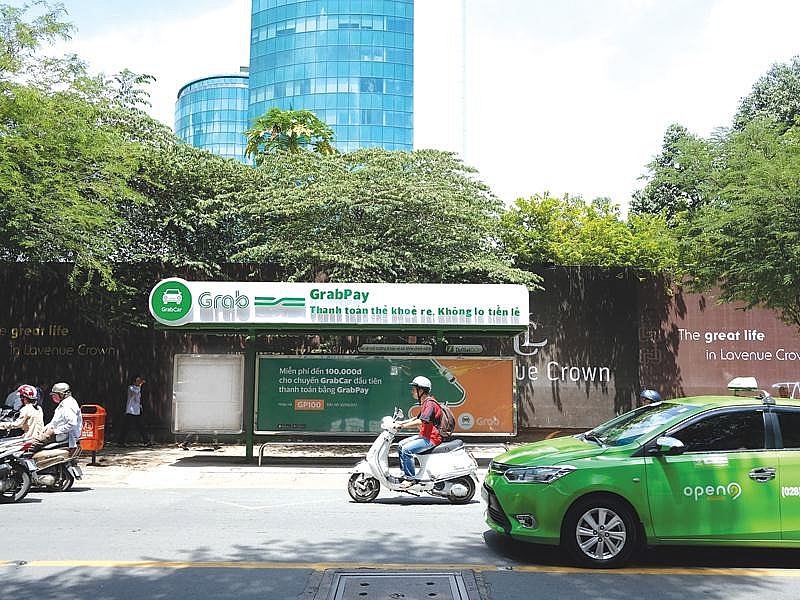What future awaits Grab and Uber?
 |
| What is the future for Grab and Uber? |
Grab and Uber may be forced to cancel
At present, the Vietnam Competition Authority (VCA) under the Ministry of Industry and Trade is conducting an official investigation to clarify signs of violation in the deal between Grab and Uber, after a preliminary investigation found that Grab’s market share after the deal will exceed 50 per cent, which goes against the monopoly clauses of the Competition Law. The official investigation will last for 180 days from May 18.
According to the Competition Law, if enterprises participating in an economic concentration have a combined market share of 30-50 per cent, their lawful representatives must notify the competition authority before implementing the concentration, otherwise they will have to pay a fine of 10 per cent of the revenue from the fiscal year previous to the date the deal was completed (if the deal is completed in 2017, the fine is equal 10 per cent of the revenue of the 2016 fiscal year).
To boot, in case the combined market share exceeds 50 per cent of the relevant market, the economic concentration will also be prohibited.
This brings up the question of what Grab will do if its market share exceeds 50 per cent.
Truong Thanh Duc, chairman of Banking Securities Investment Law Co., Ltd., told Vneconomy that if the deal between Grab and Uber violates the Competition Law, Grab will have to cancel the deal with Uber despite the deal is ended, much like the way AVG and MobiFone did.
Notably, MobiFone and AVG had to cancel the transfer of 344.66 million shares, returning to each other what they received according to the agreement. The total value of the deal was VND8.889 trillion ($392 million).
Selling Uber’s operation to third parties
Nguyen Minh Duc, representative of the Vietnam Chamber of Commerce and Industry (VCCI), told Vneconomy that if the deal does not comply with the regulations, Grab will have to pay a fine and separate its operations from those acquired from Uber to operate independently from each other.
| Duc added that in his opinion, after the merger, despite its monopoly, Grab neither does make competition impossible nor issues high fares to customers, the government should consider allowing Grab to continue operations as usual. |
However, Duc also stated that such a separation would be difficult. In reality, there has yet to be precedent for the separation of operations after a merger.
He added that after the merger, despite its monopoly, Grab neither does make competition impossible nor issues high fares to customers, the Vietnamese government should consider allowing Grab to continue operations as usual.
Uber has yet to comment on the issue, but seems to be bulling forward in other markets, following its post-M&A strategy.
Notably, according to AFP, on May 22 Uber announced that it would start piloting ride-hailing services in Japan this summer.
Uber said it aimed to provide local residents and tourists with "reliable and safe transportation" on the small island of Awaji, which is home to just over 150,000 people.
Despite finding it difficult to penetrate the Japanese market where risk-averse passengers stick to high-quality traditional taxi servicea, Uber is still eager to join this market.
"I am very excited that Uber's technology will contribute to further enhancing the transit environment of Awaji Island," Brooks Entwistle, Uber's chief business officer, said in the statement, adding that this will be "the first initiative of its kind in Japan."
| The legendary investor Warren Buffett tried to buy a $3 billion stake in Uber earlier this year through his company, Berkshire Hathaway, Bloomberg News' Eric Newcomer and Olivia Zaleski reported on May 23. However, the deal fell apart because of disagreements over the size and terms of the potential investment, Bloomberg reported, citing people familiar with the discussions. Neither Uber nor Berkshire Hathaway responded to the news outlet's request for comment. Transportation has been a popular sector for Buffett as he decides what to do with Berkshire’s estimated $160 billion cash pile that is ripe for acquiring new companies. |
What the stars mean:
★ Poor ★ ★ Promising ★★★ Good ★★★★ Very good ★★★★★ Exceptional
Themes: Ride-hailing services
Related Contents
Latest News
More News
- Masan Consumer names new deputy CEO to drive foods and beverages growth (February 23, 2026 | 20:52)
- Myriad risks ahead, but ones Vietnam can confront (February 20, 2026 | 15:02)
- Vietnam making the leap into AI and semiconductors (February 20, 2026 | 09:37)
- Funding must be activated for semiconductor success (February 20, 2026 | 09:20)
- Resilience as new benchmark for smarter infrastructure (February 19, 2026 | 20:35)
- A golden time to shine within ASEAN (February 19, 2026 | 20:22)
- Vietnam’s pivotal year for advancing sustainability (February 19, 2026 | 08:44)
- Strengthening the core role of industry and trade (February 19, 2026 | 08:35)
- Future orientations for healthcare improvements (February 19, 2026 | 08:29)
- Infrastructure orientations suitable for a new chapter (February 19, 2026 | 08:15)

 Tag:
Tag:

























 Mobile Version
Mobile Version